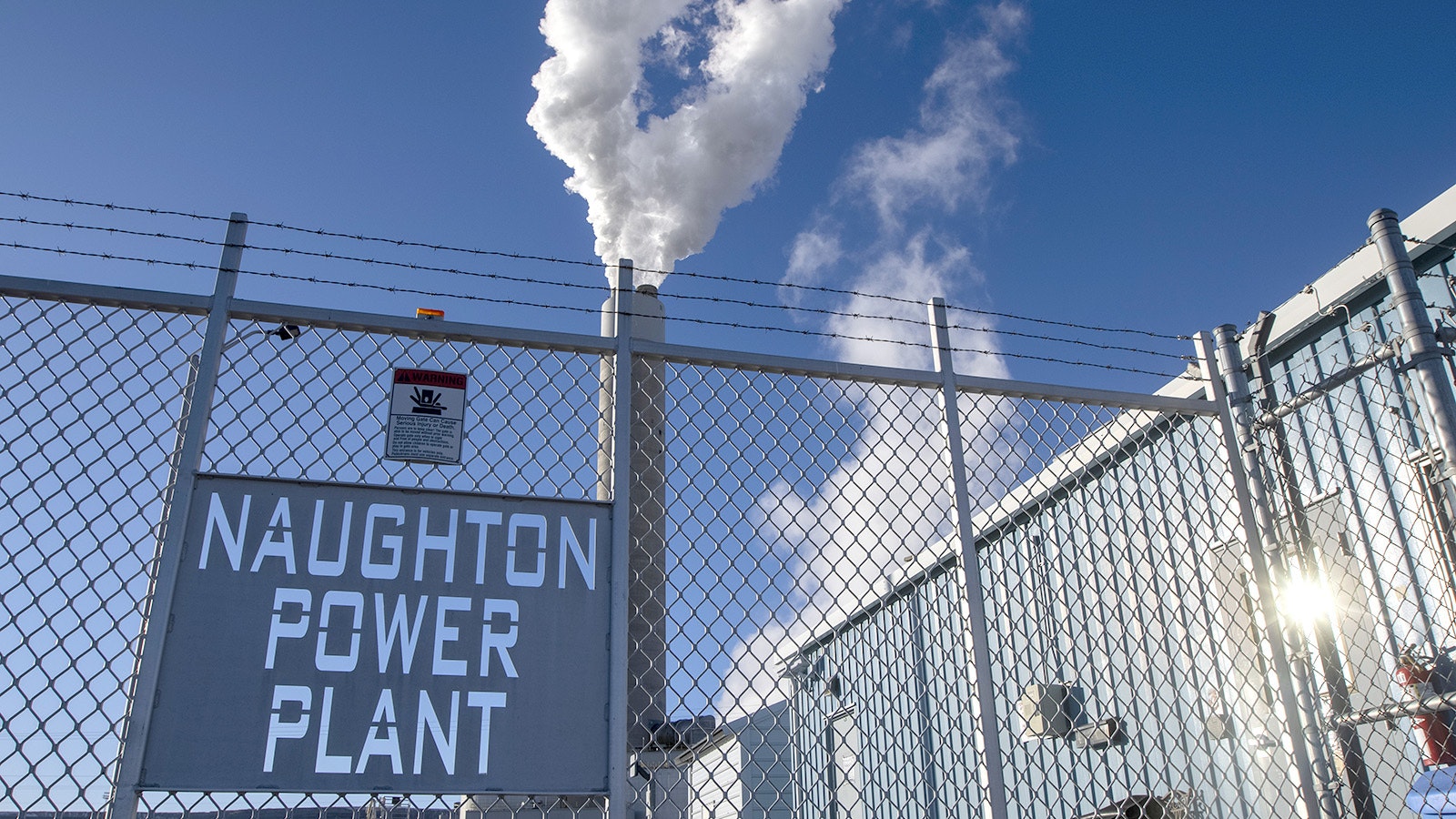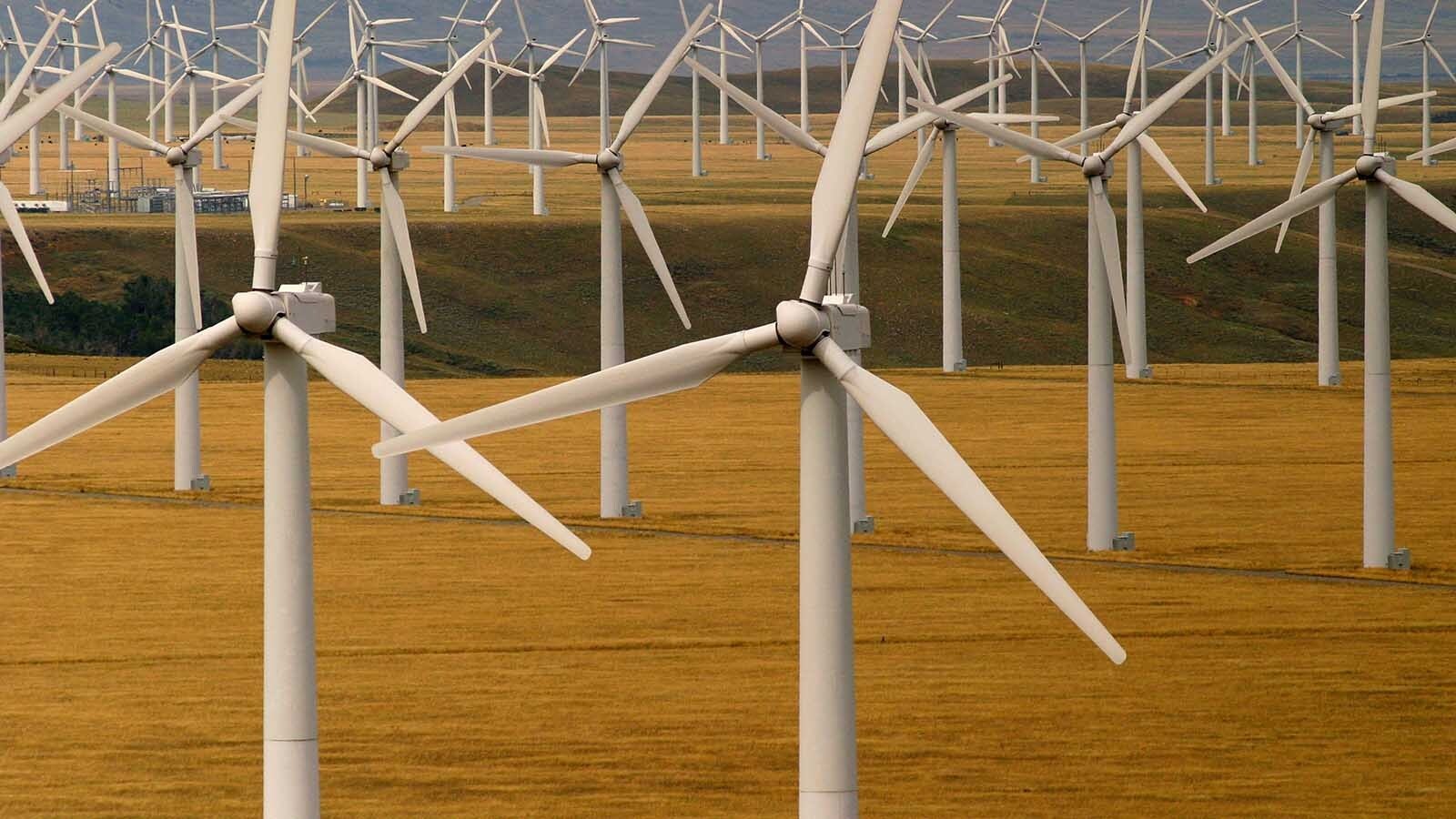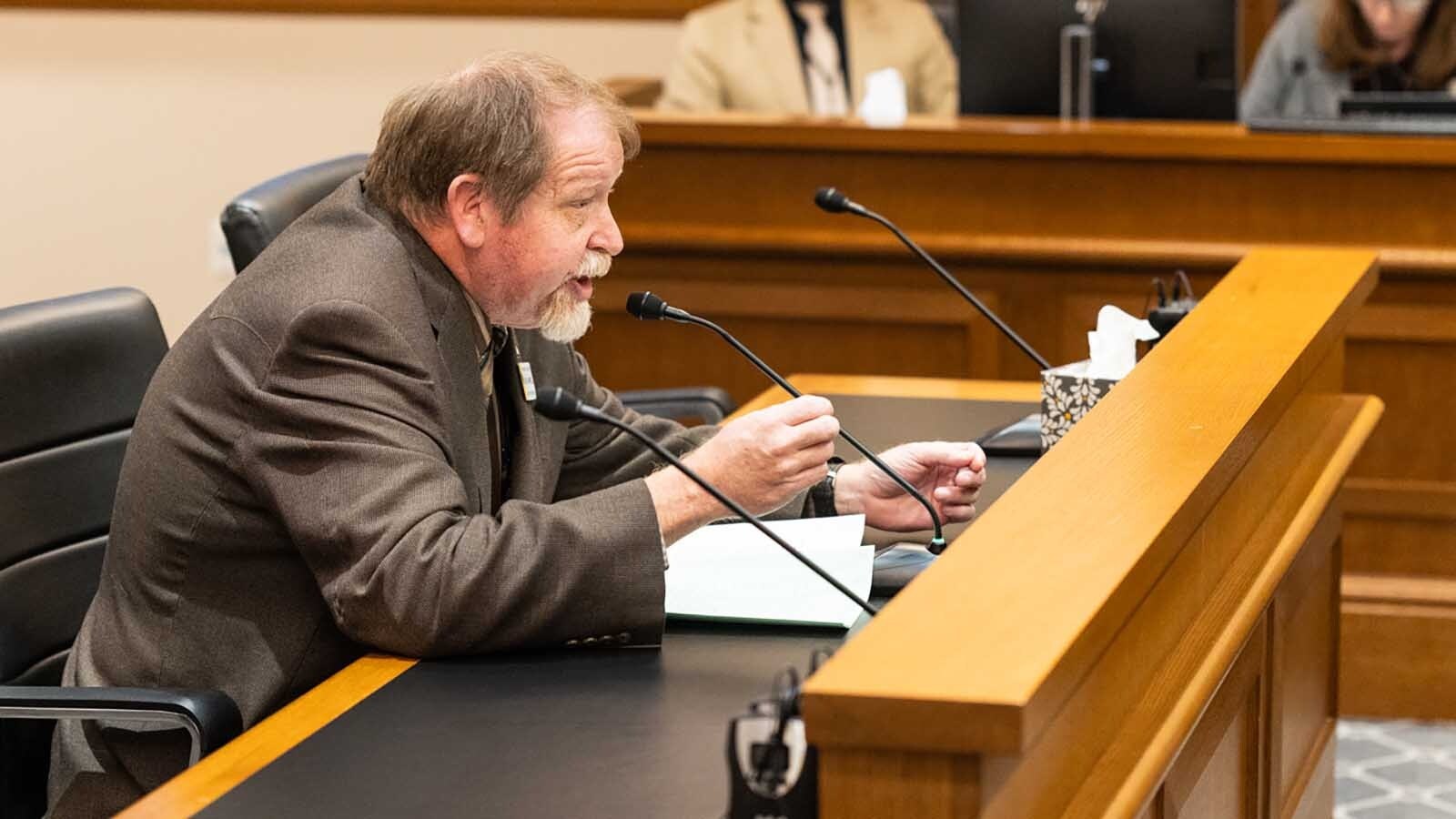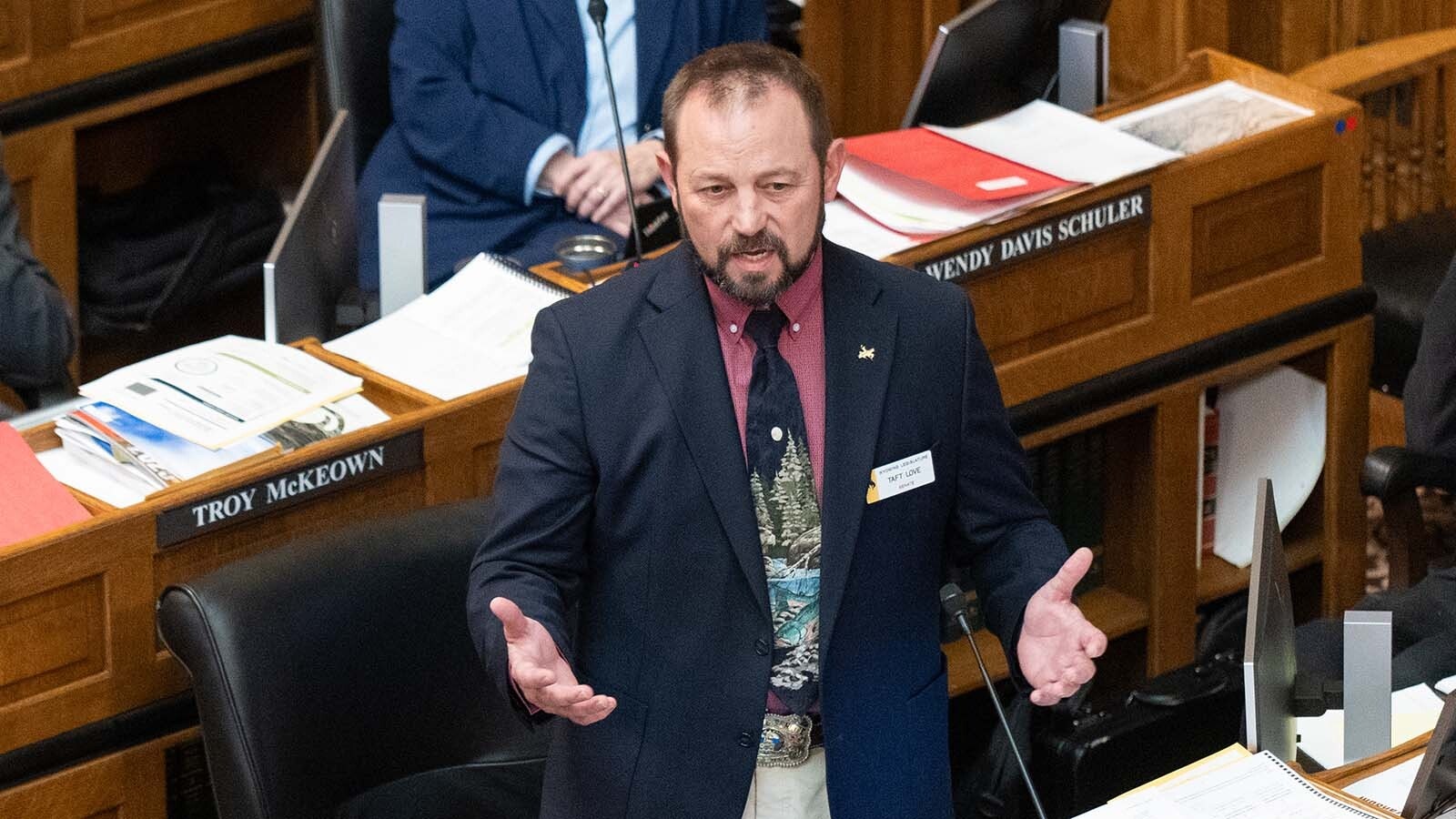The Joint Revenue Committee is discussing taxing electricity produced in Wyoming as the state’s historically solid coal revenues become less certain.
If Wyoming adopted such a tax, Wyoming businesses and residents would see higher electric bills, but the state would also collect more from other states that use electricity generated here.
Wyoming exports about 85% of the energy it produces. While federal energy policy is driving away coal- and natural gas-fired electricity, so are renewable portfolio standards passed by legislatures in other states.
Sen. Bo Biteman, R-Ranchester, asked what Wyoming can do to stop these other states from driving Wyoming’s energy portfolio.
“Let them produce their own power based on unicorn farts and pixie dust or whatever else they want to produce their power from,” Biteman suggested at this week’s meeting.
Taxing Electrons
The concern for some of Wyoming’s tax-adverse lawmakers is what happens if falling demand for coal and natural gas hit Wyoming’s revenues, which are heavily dependent on fossil fuel extraction taxes. Schools, as well as state and local government, depend on that revenue to operate.
Sen. Cale Case, R-Lander, argued that since Wyoming exports so much of the power it produces, a gross receipts tax on electricity would mainly be borne by residents of other states, while providing the state with replacement revenues.
“A gross receipts tax would make a lot of sense in the fact that it would allow for us to look at how Wyoming's supply picture will be changing, and give us tax revenues into the future,” Case said.
As more electric cars are put on the road and energy-intensive industries like Bitcoin mining come online, Case said, there will be more demand for energy for Wyoming to supply.
“We have to be prepared for these changes,” Case said.
Future For Coal
Rep. John Bear, R-Gillette, said he supports the idea of some kind of tax on electricity, but he has a different purpose in mind.
The federal government, he explained, provides subsidies to wind and solar farms, which makes them more economically attractive to cooperatives and utilities. By taxing the electricity it produces, Wyoming could help mitigate some of the market manipulation those subsidies create.
Bear disputed that the end of coal is as certain as Case stated. He pointed to Germany, which pursued an aggressive effort to replace all electrical generation with renewable sources, only to find itself heavily dependent on natural gas. When the war in Ukraine stopped the supply of gas from Russia, Germany turned back to coal.
“I think there is a future for coal,” Bear said.
Bear also suggested that, should Wyoming adopt such a tax, there should be some way to exempt Wyoming residents and businesses.
“I do believe that this is how the American Dream is powered — low energy cost allows entrepreneurs to create new businesses and new opportunities,” he said.
Climate ‘Crisis’
Case told Cowboy State Daily that there are people who believe there will be no production of coal within 10 years.
“And some people would like it sooner than that,” he said.
At the committee meeting, Case said he agrees that shutting down coal plants will ultimately cause problems, as it did for Germany, but he said many renewable energy proponents will just double down on their support for wind, solar and storage.
These advocates believe “we just have to spend a lot more money to try to get there because the climate crisis is so intense, so severe and so looming that we have to do something about it,” Case said.
Case said that the gross receipts tax on electricity he proposes would work to Wyoming’s favor regardless of which way the nation’s energy direction goes, since it would tax all electricity production no matter the source.
Corporate Tax
Bear said that the Wyoming Legislature should push back on the “climate crisis” narrative, which says that carbon dioxide emissions are not just impacting climate, but also creating catastrophes that justify rapidly eliminating coal and natural gas.
Speaking after the committee meeting, Bear told Cowboy State Daily that Case’s proposal will ultimately become a corporate tax.
He said the record of such taxes in other states fail to meet revenue goals, and that leads to personal income taxes.
“That’s my supposition, and I’m very leery of what he [Sen. Case] is proposing,” Bear said.
Undermining Competitiveness
Chris Brown, president and CEO of Powering Up Wyoming, an organization that promotes a diverse mix of energy production in the state, said that the tax could make Wyoming less competitive.
While energy demand will grow, Brown said, other states are building out their wind and solar farms. This is already having an impact on Wyoming’s energy exports. Between 2018 and 2021, he said, based on U.S. Energy Information Administration data, Wyoming exported 5% fewer megawatt hours of electricity than it did in 1990.
Brown urged the commission to stop arguing over which energy source is best and instead focus on what’s best in terms of the state’s economy.
“How does Wyoming stay relevant?” Brown said. “From our perspective … it's embracing all of the energy resources that Wyoming is so fortunate to be blessed with.”
Brown said trying to address the issue of federal subsidies with taxes on electricity is only going to harm the state’s energy industry as it faces more competition from other states.
We’re Here To Help
A question remains what would happen should there be a shift in energy policy at the federal level somewhere down the road.
As much as the federal government and state legislatures are driving wind and solar development, the cooperatives and utilities that distribute and produce electricity have to deal with the reality of physics.
With limited economically viable options to store electrons, virtually all electricity is produced the moment it’s consumed. Since wind and solar produce intermittently, coal and natural gas backup are required to ensure the lights stay on.
Shawn Taylor, executive director of the Wyoming Rural Electric Association, said the cooperatives’ primary mission is providing affordable, reliable power to its members.
The biggest obstacle the cooperatives face in meeting that objective is federal regulations.
“It seems recently we're getting a new proposed rule or regulation every day coming out of the EPA on the power plant emissions controls,” Taylor said.”
He said the federal government is allocating billions of dollars for carbon capture technologies to reduce emissions, but then the EPA proposes rules requiring plants to use the technology that isn’t technically or financially feasible.
Should the rules become final, they’ll be shutting down plants that can’t adopt the carbon capture technology the feds are providing subsidies to develop and install on plants it’s shutting down.
Wind Divestment
Biteman asked Taylor if wind or coal provides the most affordable power for its members.
“We've continually said that coal meets our main mission — cheap and reliable,” Taylor said.
Sen. Bob Ide, R-Casper, asked how renewable energy sources would impact the ability for those industries to continue to operate.
Taylor said that because those subsidies exist, whether the cooperatives support them politically or not, they make renewable attractive from a financial standpoint.
“If there comes a time when those subsidies go away, and then you see the actual cost, then they would probably divest of them,” Taylor said.





